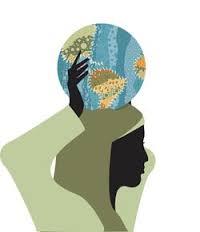There is No Progress Without Empowering Women and Ending Inequality
Feb 20th, 2014 | By admin | Category: Reproductive Rights/Women's RightsBy Suzanne York, www.howmany.org
Last week, the United Nations released a report that found that despite gains in reducing global poverty, growing inequalities will undo significant gains in health and longevity made over the past 20 years.
According to the ICPD Beyond 2014 Global Report, the estimated 1 billion people living in the 50 to 60 poorest countries will stagnate as the rest of the world gets richer. In fact, approximately 8 percent of the world’s population has accumulated over 80 percent of global wealth.This amassing of the world’s wealth, including finite natural resources, to a small percentage of the population, limits resources for reducing global poverty. It also reduces social cohesion, upward mobility, empathy, and shared responsibility.
Twenty years ago in Cairo, participants to the International Conference on Population and Development recognized that increasing social, economic and political equality, and access to sexual and reproductive health and rights, is the basis for individual well-being, lower population growth, and sustainable development.
Yet in many of the world’s poorest communities, there has been little progress on improving the status of women and reducing the rates of maternal death and child marriage, or with other concerns of the Cairo conference. While rates of maternal death have declined significantly – 47 percent since 1994 – it is still a dire concern for impoverished and marginalized women.
As the above report shows, there have been good news and some distressing news in the past two decades, especially for women.
The Good
- Maternal mortality worldwide fell by nearly half between 1990 and 2010;
- More women have access to education, work and political participation;
- More children, girls in particular, are going to school, with primary school enrollment rates approaching 90%;
- Nearly 1 billion people have moved out of extreme poverty.
The Bad
- More than half of the absolute gains in global income from 1988 to 2008 went to the richest 5%. None went to the bottom 10%;
- Every day 800 women die in childbirth;
- 1 in 3 women worldwide reports having experienced physical and/or sexual abuse;
- 1 in 3 girls in developing countries is married before the age of 18;
- 1 in 5 girls in developing countries become pregnant before age 18.
It is widely known that higher levels of education can result in delayed marriage and lower fertility rates. Governments, donors, and NGOs need to make critical investments to ensure quality health and education, freedom from early marriage and childbearing, opportunities for safe paid work, and political participation.
The core message of the ICPD, in 1994 and today, is that a fundamental commitment to individual dignity and human rights is the basis of a resilient and sustainable future.
The time for action is now. Globally, wealth and income inequalities continue to increase, and there is much more to be done for empowering women and improving gender equality.In the words of Dr. Babatunde Osotimehin, executive director of the UN Population Fund, “A fundamental commitment to individual dignity and human rights is the basis of a resilient and sustainable future. We cannot afford to wait another 20 years to address the inequalities plaguing our collective well-being.”
Suzanne York is a senior writer with the Institute for Population Studies.


